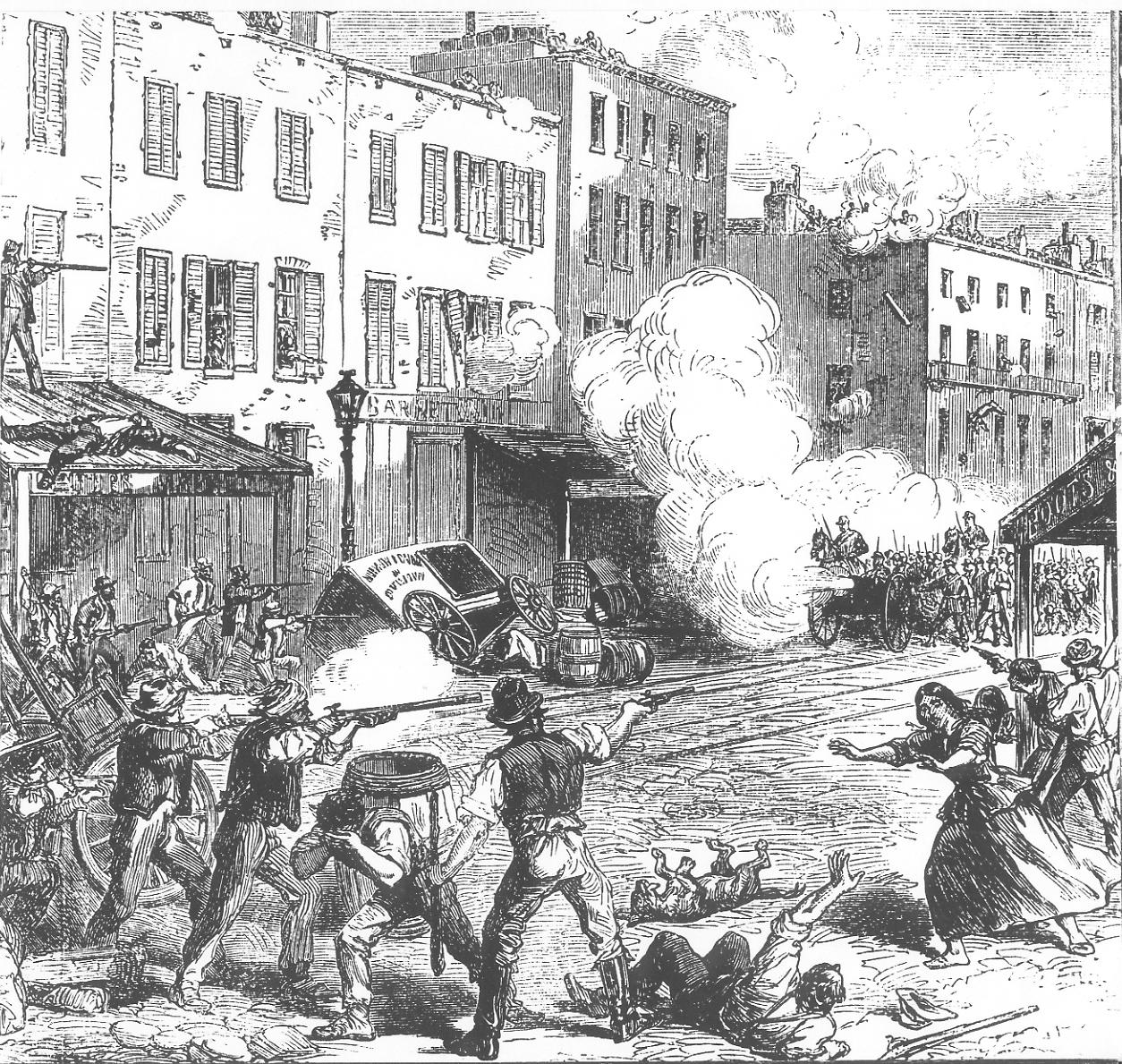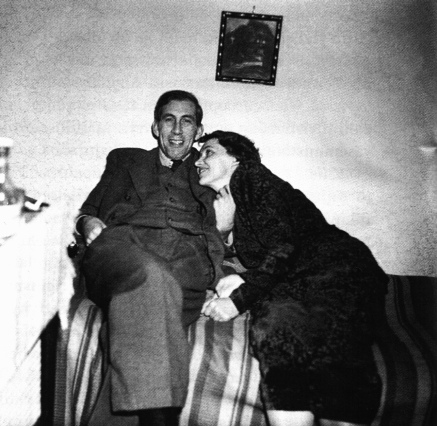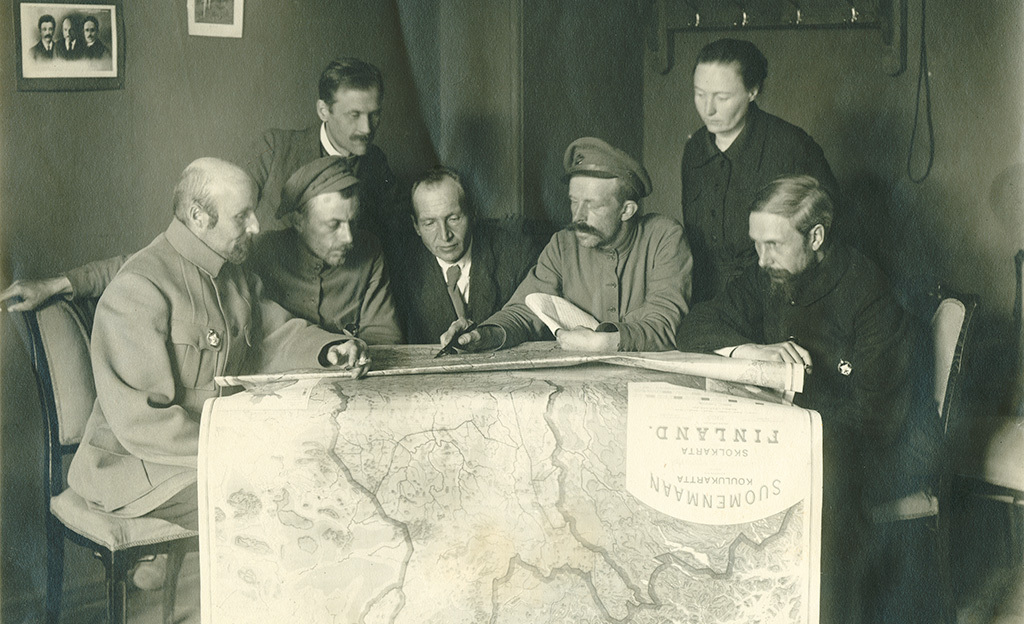|
Finland–Soviet Union Peace And Friendship Society
The Finland–Soviet Union Peace and Friendship Society ( Finnish: ''Suomen-Neuvostoliiton rauhan ja ystävyyden seura'', SNS) was a Finnish anti-war propaganda organization founded on 22 May 1940 by Communist politician Mauri Ryömä in the aftermath of the Winter War between the Soviet Union and Finland. It called for an avoidance of future wars and maintained a firmly pro-Soviet stand, distributing propaganda leaflets and participating in riots. It had 35,000 paying members in 115 local branches within five months after its founding.Anthony F. Upton. ''The Communist Parties of Scandinavia and Finland''. London: Weidenfeld & Nicolson. 1973. pp. 229-30. On 24 July the Soviet foreign minister Vyacheslav Molotov accused the Finnish government of persecuting the society and later he publicly supported it. The society organized demonstrations, some of which turned into riots. On 23 December however it was banned, having been widely seen as a front organization of the illegal Communist ... [...More Info...] [...Related Items...] OR: [Wikipedia] [Google] [Baidu] |
Finnish Language
Finnish (endonym: or ) is a Finnic languages, Finnic language of the Uralic languages, Uralic language family, spoken by the majority of the population in Finland and by ethnic Finns outside of Finland. Finnish is one of the two official languages of Finland, alongside Swedish language, Swedish. In Sweden, both Finnish and Meänkieli (which has significant mutual intelligibility with Finnish) are official minority languages. Kven language, Kven, which like Meänkieli is mutually intelligible with Finnish, is spoken in the Norway, Norwegian counties of Troms and Finnmark by a minority of Finnish descent. Finnish is morphological typology, typologically agglutinative language, agglutinative and uses almost exclusively Suffix, suffixal affixation. Nouns, adjectives, pronouns, Numeral (linguistics), numerals and verbs are inflection, inflected depending on their role in the Sentence (linguistics), sentence. Sentences are normally formed with subject–verb–object word order, alth ... [...More Info...] [...Related Items...] OR: [Wikipedia] [Google] [Baidu] |
Finnish People
Finns or Finnish people (, ) are a Baltic Finns, Baltic Finnic ethnic group native to Finland. Finns are traditionally divided into smaller regional groups that span several countries adjacent to Finland, both those who are native to these countries as well as those who have resettled. Some of these may be classified as separate ethnic groups, rather than subgroups of Finns. These include the Kvens and Forest Finns in Norway, the Tornedalians in Sweden, and the Ingrian Finns in Russia. Finnish language, Finnish, the language spoken by Finns, is closely related to other Balto-Finnic languages such as Estonian language, Estonian and Karelian language, Karelian. The Finnic languages are a subgroup of the larger Uralic languages, Uralic family of languages, which also includes Hungarian language, Hungarian. These languages are markedly different from most other languages spoken in Europe, which belong to the Indo-European languages, Indo-European family of languages. Native Finns c ... [...More Info...] [...Related Items...] OR: [Wikipedia] [Google] [Baidu] |
Anti-war
An anti-war movement is a social movement in opposition to one or more nations' decision to start or carry on an armed conflict. The term ''anti-war'' can also refer to pacifism, which is the opposition to all use of military force during conflicts, or to anti-war books, paintings, and other works of art. Some activists distinguish between anti-war movements and peace movements. Anti-war activists work through protest and other grassroots means to attempt to pressure a government (or governments) to put an end to a particular war or conflict or to prevent one from arising. History American Revolutionary War Substantial opposition to British war intervention in America led the British House of Commons on 27 February 1783 to vote against further war in America, paving the way for the Second Rockingham ministry and the Peace of Paris. Antebellum United States Substantial antiwar sentiment developed in the United States roughly between the end of the War of 1812 and the comm ... [...More Info...] [...Related Items...] OR: [Wikipedia] [Google] [Baidu] |
Mauri Ryömä
Mauri Ryömä (30 October 1911, Helsinki – 28 November 1958) was a Finland, Finnish physician and politician. Biography He was a member of the Parliament of Finland, representing the Social Democratic Party of Finland (SDP) from 1936 to 1937 and the Finnish People's Democratic League (SKDL) from 1945 until his death in 1958. He was imprisoned for political reasons from 1940 to 1944. After he was freed in 1944 as a result of the Moscow Armistice of 19 September 1944, he joined the SKDL and the Communist Party of Finland (SKP). He was the son of Hannes Ryömä and he was married to Elvi Sinervo. He died in a car accident four months after having been reelected in the 1958 Finnish parliamentary election. References Sources * Hanski, JariRyömä, Mauri. ''Kansallisbiografia-verkkojulkaisu.'' Studia Biographica 4. Helsinki: Suomalaisen Kirjallisuuden Seura, 1997. 1911 births 1958 deaths Politicians from Helsinki People from Uusimaa Province (Grand Duchy of Finland) Socia ... [...More Info...] [...Related Items...] OR: [Wikipedia] [Google] [Baidu] |
Winter War
The Winter War was a war between the Soviet Union and Finland. It began with a Soviet invasion of Finland on 30 November 1939, three months after the outbreak of World War II, and ended three and a half months later with the Moscow Peace Treaty on 13 March 1940. Despite superior military strength, especially in tanks and aircraft, the Soviet Union suffered severe losses and initially made little headway. The League of Nations deemed the attack illegal and expelled the Soviet Union from its organization. The Soviets made several demands, including that Finland cede substantial border territories in exchange for land elsewhere, claiming security reasonsprimarily the protection of Leningrad, from the Finnish border. When Finland refused, the Soviets invaded. Most sources conclude that the Soviet Union had intended to conquer all of Finland, and cite the establishment of the Finnish Democratic Republic, puppet Finnish Communist government and the Molotov–Ribbentrop Pact' ... [...More Info...] [...Related Items...] OR: [Wikipedia] [Google] [Baidu] |
Soviet Union
The Union of Soviet Socialist Republics. (USSR), commonly known as the Soviet Union, was a List of former transcontinental countries#Since 1700, transcontinental country that spanned much of Eurasia from 1922 until Dissolution of the Soviet Union, it dissolved in 1991. During its existence, it was the list of countries and dependencies by area, largest country by area, extending across Time in Russia, eleven time zones and sharing Geography of the Soviet Union#Borders and neighbors, borders with twelve countries, and the List of countries and dependencies by population, third-most populous country. An overall successor to the Russian Empire, it was nominally organized as a federal union of Republics of the Soviet Union, national republics, the largest and most populous of which was the Russian SFSR. In practice, Government of the Soviet Union, its government and Economy of the Soviet Union, economy were Soviet-type economic planning, highly centralized. As a one-party state go ... [...More Info...] [...Related Items...] OR: [Wikipedia] [Google] [Baidu] |
Finland
Finland, officially the Republic of Finland, is a Nordic country in Northern Europe. It borders Sweden to the northwest, Norway to the north, and Russia to the east, with the Gulf of Bothnia to the west and the Gulf of Finland to the south, opposite Estonia. Finland has a population of 5.6 million. Its capital and largest city is Helsinki. The majority of the population are Finns, ethnic Finns. The official languages are Finnish language, Finnish and Swedish language, Swedish; 84.1 percent of the population speak the first as their mother tongue and 5.1 percent the latter. Finland's climate varies from humid continental climate, humid continental in the south to boreal climate, boreal in the north. The land cover is predominantly boreal forest biome, with List of lakes of Finland, more than 180,000 recorded lakes. Finland was first settled around 9000 BC after the Last Glacial Period, last Ice Age. During the Stone Age, various cultures emerged, distinguished by differen ... [...More Info...] [...Related Items...] OR: [Wikipedia] [Google] [Baidu] |
Soviet Propaganda
Propaganda in the Soviet Union was the practice of state-directed communication aimed at promoting class conflict, proletarian internationalism, the goals of the Communist Party of the Soviet Union, and the party itself. The main Soviet censorship body, Glavlit, was employed not only to eliminate any undesirable printed materials but also "to ensure that the correct ideological spin was put on every published item." After the death of Joseph Stalin, punitive measures were replaced by punitive psychiatry, prison, denial of work, and loss of citizenship. Theory of propaganda According to historian Peter Kenez, "the Russian socialists have contributed nothing to the theoretical discussion of the techniques of mass persuasion. ... The Bolsheviks never looked for and did not find devilishly clever methods to influence people's minds, to brainwash them." Kenez says this lack of interest "followed from their notion of propaganda. They thought of propaganda as part of education." ... [...More Info...] [...Related Items...] OR: [Wikipedia] [Google] [Baidu] |
Vyacheslav Molotov
Vyacheslav Mikhaylovich Molotov (; – 8 November 1986) was a Soviet politician, diplomat, and revolutionary who was a leading figure in the government of the Soviet Union from the 1920s to the 1950s, as one of Joseph Stalin's closest allies. Molotov served as Chairman of the Council of People's Commissars (head of government) from 1930 to 1941, and as Minister of Foreign Affairs from 1939 to 1949 during the era of the Second World War, and again from 1953 to 1956. An Old Bolshevik, Molotov joined the Russian Social Democratic Labour Party in 1906 and was arrested and internally exiled twice before the October Revolution of 1917. He briefly headed the party's Secretariat before supporting Stalin's rise to power in the 1920s, becoming one of his closest associates. Molotov was made a full member of the Politburo in 1926 and became premier in 1930, overseeing Stalin's agricultural collectivization (and resulting famine) and his Great Purge. As foreign minister from 1939, Mo ... [...More Info...] [...Related Items...] OR: [Wikipedia] [Google] [Baidu] |
Front Organization
A front organization is any entity set up by and controlled by another organization, such as intelligence agencies, organized crime groups, terrorist organizations, secret societies, banned organizations, religious or political groups, advocacy groups, or corporations. Front organizations can act for the parent group without the actions being attributed to the parent group, thereby allowing them to hide certain activities from the authorities or the public. Front organizations that appear to be independent voluntary associations or charitable organizations are called front groups. In the business world, front organizations such as front companies or shell corporations are used to shield the parent company from legal liability. In international relations, a puppet state is a state which acts as a front (or surrogate) for another state. Intelligence agencies Intelligence agencies use front organizations to provide "cover", plausible occupations and means of income, for their ... [...More Info...] [...Related Items...] OR: [Wikipedia] [Google] [Baidu] |
Communist Party Of Finland
The Communist Party of Finland (, SKP; ) was a communist political party in Finland. The SKP was a section of Comintern and illegal in Finland until 1944. The SKP was banned by the state from its founding and did not participate in any elections with its own name. Instead, front organisations were used. In the 1920s, the communists took part in the Socialist Workers' Party of Finland (1920–1923) and the Socialist Electoral Organisation of Workers and Smallholders (1924–1930). Both of them were also banned. In 1944, a new front, the Finnish People's Democratic League was formed. The SKP controlled these fronts but they always had a prominent minority of non-communist socialists. History Early stages In 1918, the Reds lost the Finnish Civil War. The Social Democratic Party of Finland had supported the losing side, and several of its leaders were exiled in Soviet Russia. Some of these exiles founded the Communist Party of Finland in Moscow. The SKP was illegal in F ... [...More Info...] [...Related Items...] OR: [Wikipedia] [Google] [Baidu] |
Finnish Democratic Republic
The Finnish Democratic Republic ( or ''Suomen kansantasavalta'', , Russian: ''Финляндская Демократическая Республика''), also known as the Terijoki Government (), was a short-lived puppet government of the Soviet Union in occupied Finnish territory from December 1939 to March 1940. The Finnish Democratic Republic was established by Joseph Stalin upon the outbreak of the Winter War and headed by Otto Wille Kuusinen to govern Finland after Soviet conquest. The Finnish Democratic Republic was only recognised by the Soviet Union and nominally operated in Soviet-occupied areas of Finnish Karelia from the '' de facto'' capital of Terijoki. The Finnish Democratic Republic was portrayed by the Soviet Union as the official socialist government of Finland capable of restoring peace, but lost favor as the Soviets sought rapprochement with the Finnish Government. The Finnish Democratic Republic was dissolved and merged into the Karelo-Finnish SSR upon th ... [...More Info...] [...Related Items...] OR: [Wikipedia] [Google] [Baidu] |







